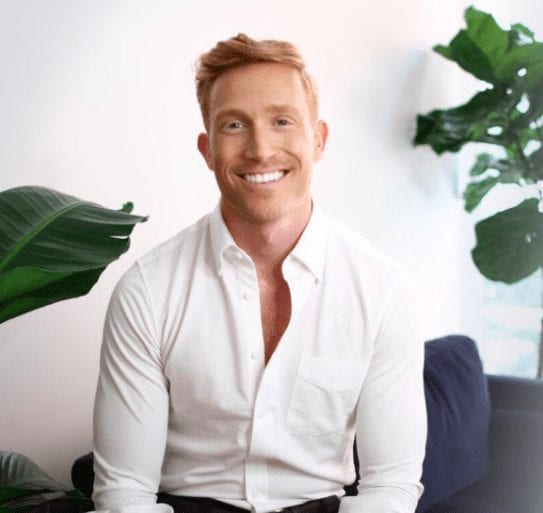The STRENGTH in Vulnerability: How to Improve Your Relationships
The STRENGTH in Vulnerability: How to Improve Your Relationships By Letting Down Your Guard
Love — everyone wants to experience it, but no one wants to get hurt. Why? It’s because the true act of “love” is scary, uncontrolled, vulnerable.
What is vulnerability and why does it terrify us?
Vulnerability is the quality or state of being open, even when the possibility of being harmed exists. Vulnerability, the state of openness, is one of our greatest strengths because it allows wonderful things to come into our lives.

As children, many of us — especially males — are discouraged from showing vulnerability. We are taught that to cry, emote, or talk about our feelings is to be fragile, ridiculous, or somehow less than the people around us. “Never let ‘em see you sweat,” “boys don’t cry,” and “toughen up” are just a few of the phrases we might have been told over and over again, until they became a silent but dominant narrative in our lives. We learn quickly to stuff our feelings deep down inside where no one can see or reach them, but then, something peculiar happens:
When we we put up walls to block others from seeing our emotions, we can lose the ability to access them ourselves. In essence, we cut ourselves off from our own humanity.
While as children we may appear fearless, over time, the world has a way of being oppressive, and we ultimately we grow up to become emotionally stifled adults who struggle to effectively cope with our feelings. This leads to less effective and less assertive communication skills in the workplace, less openness and communication in friendships, and — you guessed it — unnecessarily dramatic or lackluster romantic relationships. Ironically, our very efforts to protect ourselves are what block us from the very thing we want the most: love.
So, how do we get out of our own way? We get vulnerable. When we learn how to effectively tap into our vulnerability, we see that it is not a weakness, but perhaps our greatest strength.
Below, find three tips on vulnerability and how it can improve the quality your relationships.
Vulnerability Tip #1: Be explicit about your wants and needs
So many of us struggle with speaking up about what exactly we want out of our relationships. We don’t want to put ourselves in the vulnerable position of expressing an earnest desire for fear of receiving an unwanted answer. However, as the saying goes, “a closed mouth doesn’t get fed.” In other words, the only way to get what we need from other people is to make it known.
Do you desire more appreciation, a raise, or title change to reflect your growth in the workplace? Why not advocate for yourself and set up a meeting with your boss and talk about your professional desires and everything you are doing to get there? Do you wish that your partner would spend more quality time with you? Speak up and tell them what you need. When communicating with a loved one, use phrases such as “I need,” “I want,” “I hope for,” etc, so that expectations are out on the table. You may worry about your partner’s response, but remember:
A few moments of vulnerability are never as uncomfortable as living with less than what you desire. Your emotions are there to guide you, and showing your emotions will bring you closer.
When you get crystal clear on what you expect from others, you are more likely to gain tangible results. Yes, sometimes people will let us down — and that’s always a risk — but you are more likely t get what you want by showing what you want. Best-case scenario, you express your needs and your expectations are met or even exceeded. Worst-case, you learn that the other person simply isn’t able to provide what you want, and you’ve freed yourself to look for someone else who can meet your needs.
Vulnerability Tip #2: Be honest and forthcoming about your feelings
It’s may seem easy to have a successful relationship if you avoid all the difficult “emotional” stuff, but the reality is that our vulnerability and authenticity is more likely to inspire other and draw people closer to you. This is because In order to have a healthy relationships, you need to know that the other person accept you unconditionally. They cannot do that if you never give them the chance to truly know you. Letting your guard down may not be easy, but it is critical to having a truly intimate relationship.
You should feel comfortable talking about your fears and insecurities just like when you talk about your hopes and desires.
If you find yourself struggling to discuss tough subjects with your partner, try reminding yourself of this: “My relationship is a safe space where I am free to be my full self.”
Vulnerability Tip #3: Be receptive to support
For many of us, the issue is not finding someone who is able to meet our needs, but rather allowing them to do so. When we accumulate emotional wounds from past disappointments and heartbreak — we each have them — we often don’t know when, or how, to let it go. We hold on so tightly to our need for self-preservation that we can end up blocking new opportunities when they arrive. Part of being vulnerable is accepting that although you can stand on your own two feet, you can also choose to utilize emotional support when it arrives and is being freely offered and extended to you.
No matter how warm and understanding someone may be, it is on you to choose to if you will cling to the wound or dissolve your emotional barriers and let them in.
It is okay to lean on others, and as a matter of fact, it is a human need and it is a sign of strength to know when to relinquish control and let someone else help and support us. It is not a sign of weakness, but rather a signal of maturity and your own humanity.
Ultimately, vulnerability is vital to any healthy relationship. The innate instinct to protect oneself from harm can sometimes take over areas of our lives where defense mechanisms are simply not needed, and relationships are a prime example. A relationship should never feel like you versus the other person; you should be a team, working together every step of the way. The sooner you relinquish your attachment to past wounds and fear, you surrender to the beauty of new possibilities and you allow yourself to reap the rewards of vulnerability in the form of healthy, blossoming relationships.
ARE YOU SEEKING HELP IN RELINQUISHING FEAR AND CONTROL IN ORDER TO BECOME MORE VULNERABLE? DO YOU WANT TO LEARN MORE ABOUT HOW VULNERABILITY CAN IMPROVE YOUR RELATIONSHIPS? CONTACT DR. LOGAN JONES.
Dr. Logan is a psychotherapist in Manhattan. He specializes in helping individuals and couples struggling with cultivating intimacy. If you want to feel more confident and comfortable relating to others, call Dr. Logan for a complimentary consultation at 646.798.8354.
Contact Dr. Logan for a free consultation or visit his Twitter, IG, and Facebook for more motivation @drloganjones. You may also contant his office to set up a complimentary consultation, or sign up for his newsletter and follow him on Instagram (@drloganjones) to receive affirmations to help you in the process of creating new, more purposeful thoughts.

No matter what you’re going through, whether depression, anxiety, or PTSD, there is hope. If you are looking for therapy in NYC his psychotherapy practice is located in central Manhattan near Flatiron, West Village, NoMad Chelsea, or Union Square.


